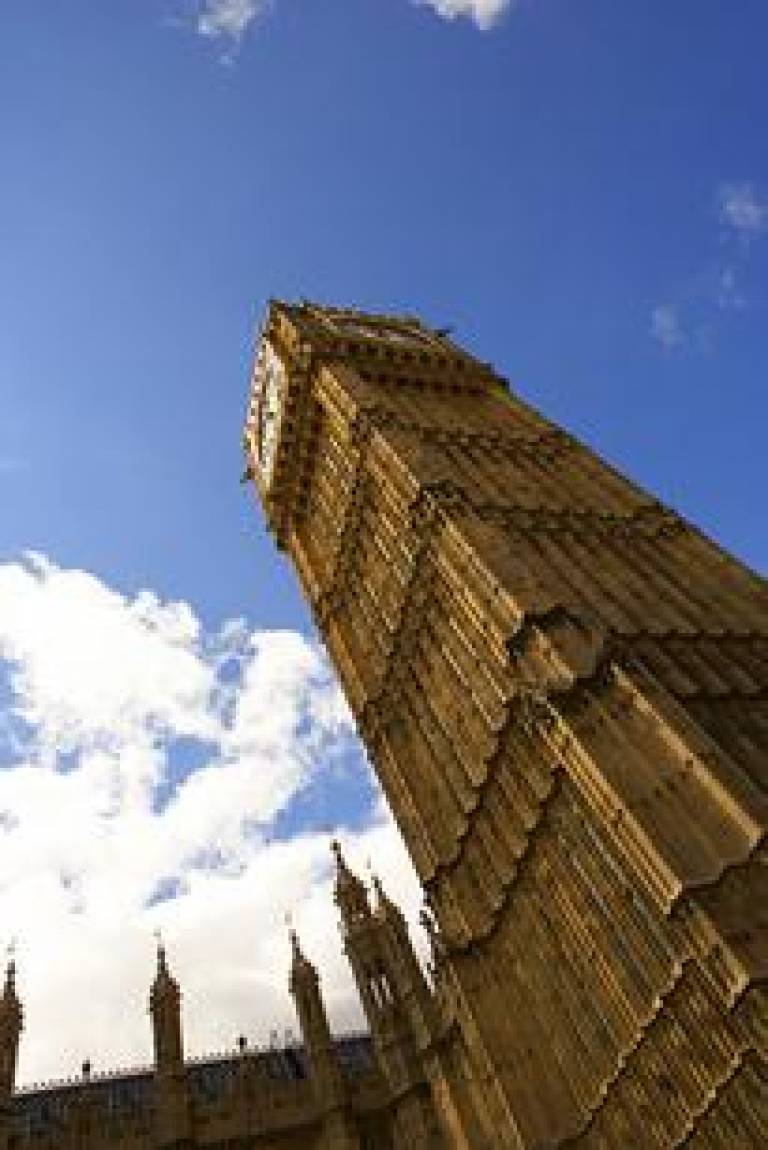Noah's Ark project wins Europa Nostra Award
18 May 2009
Links:
 greeneconomycoalition.org/know-how/noahs-ark-project-european-union" target="_self">Noah's Ark project
greeneconomycoalition.org/know-how/noahs-ark-project-european-union" target="_self">Noah's Ark project
A project - in which UCL has played a key role - to map and model the likely impact of a changing climate on Europe's cultural heritage has won an Europa Nostra Award.
The award recognises outstanding scientific research on the impact of global climate change on the built heritage and cultural landscapes.
The Noah's Ark project examined the processes of change in building materials and ensembles, and the indoor environments of historic buildings that often house irreplaceable fixtures, fittings, furniture and decorative art.
Researchers from a European interdisciplinary consortium looked at agents of change including higher temperatures, precipitation, flooding, shifting seasons, warmer winters and rising sea levels, as well as synergistic effects such as wind-driven rain.
They also studied the impact of accelerated decay of historic materials, changes in migration and species in insect pests and lichen, and the effects of wetting and drying of historic buildings.
UCL's Centre for Sustainable Heritage at the Bartlett School of Graduate Studies was responsible for three key tasks in the project:
- developing the European map for wind-driven rain for the periods 2010-2039 and 2070-2099.
- applying heat and moisture movement computer models to examine the effect of climate change on historic buildings and used the models to examine the effects of different drying strategies.
- producing guidelines proposing adaptation strategies for cultural heritage management in the face of climate change.
Professor May Cassar, Director of the Centre for Sustainable Heritage, and the UCL team leader on the Noah's Ark project, said: "This award is outstanding recognition of truly ground-breaking research carried out at UCL and by the whole European consortium. This award is only the start. We are building on this success, having secured further EC support and a commercial publisher for The Atlas of Climate Change Impact on European Cultural Heritage Scientific Analysis and Management Strategies.
"It is simply amazing that as a result of Noah's Ark so many countries including the US, NGOs including the International Council on Monuments and Sites and the International Centre for the Study of the Preservation and Restoration of Cultural Property, UN bodies such as UNESCO, the World Bank and other European institutions including the European Parliament and the Council of Europe are beginning to build actions based in our research. Funding permitting, we have great plans to take this research forward."
Image: Big Ben - an example of the historic built environment that the Noah's Ark project aims to protect
UCL context
The UCL Centre for Sustainable Heritage was originally established with the support of three UCL departments: The Bartlett Faculty of the Built Environment, the Institute of Archaeology, and the School of Library, Archive and Information Studies. It consists an international interdisciplinary research team which identifies research gaps for the physical protection of the moveable and immovable heritage that only interdisciplinary collaboration can tackle.
The Europa Nostra Awards were jointly launched in 2002 by the European Commission and Europa Nostra to celebrate outstanding initiatives among the many facets of Europe's cultural heritage in categories ranging from the restoration of buildings and their adaptation to new uses, to urban and rural landscape rehabilitation, archaeological site interpretations, and care for art collections. Prizes are also awarded for research, dedicated service to heritage conservation by individuals or organisations and education projects related to cultural heritage.
Related stories:
Earthquake experts investigate Italian disaster zone
Climate change: The biggest global-health threat of the 21st century
UCL podcast: The Lancet-UCL Global Health and Climate Change report
 Close
Close

